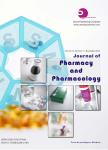Non-Specific Factors Involved in the Treatment: Its Influence on Treatment Adherence
Non-Specific Factors Involved in the Treatment: Its Influence on Treatment Adherence作者机构:Corrientes Pharmacy Santa Fe 1294 City of Corrientes 3400 Argentina
出 版 物:《Journal of Pharmacy and Pharmacology》 (药剂与药理学(英文版))
年 卷 期:2017年第5卷第6期
页 面:340-348页
学科分类:02[经济学] 0202[经济学-应用经济学] 020208[经济学-统计学] 07[理学] 070602[理学-大气物理学与大气环境] 0706[理学-大气科学] 0714[理学-统计学(可授理学、经济学学位)] 070103[理学-概率论与数理统计] 0701[理学-数学]
主 题:Adhesion to treatment nonspecific factors influencing treatment health professional patient family environment.
摘 要:Introduction: The effectiveness of treatment depends on the efficacy of the therapy and the level of compliance of the patient. NF (non-specific factors) involved in treatment are all those effects that do not depend on the pharmacological properties of the drug. Materials and Methods: The job lasted a year. The sample consisted of patients with mental health disorders and was divided into two groups. Treatment compliance was measured with the Morisky-Green Test. Results were compared using the chi square test and relative risk. Results and Discussion: Group A had 23 patients ending 91.3% of them and group B of 22 patients, ending the 77.27%. At the beginning of the study, we found in the group A 0.86 NF/patients while in the group B 0.82 NF/patient. At the end of the study there was a 54.65% decrease in group A while in group B the proportion remained. At the beginning of the study both groups had approximately 40% of compliant patients. Data that remained in the control group rose to 80.95% in group A at the end of the study. Conclusions: The work demonstrates the negative influence of these factors on adherence to treatment.



